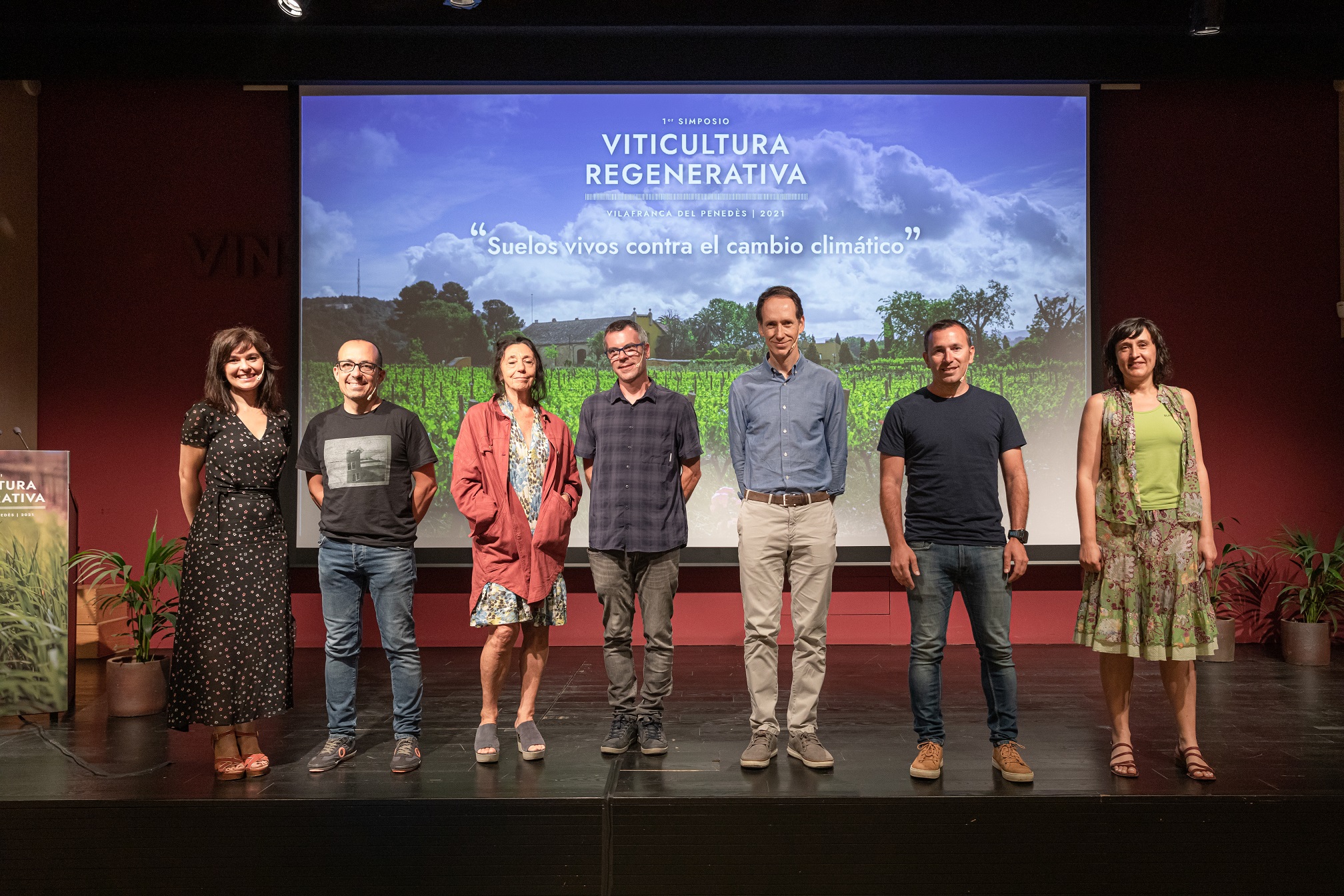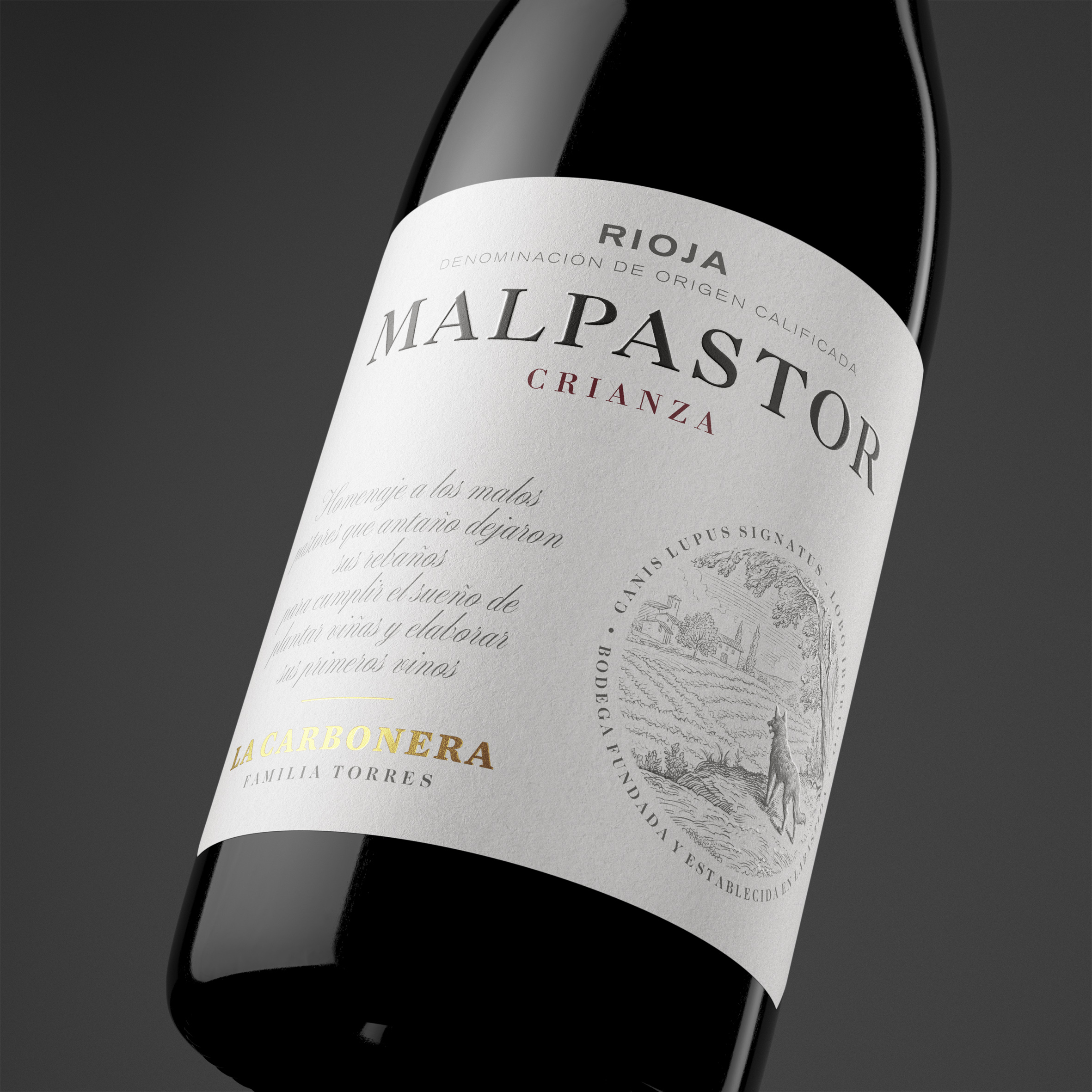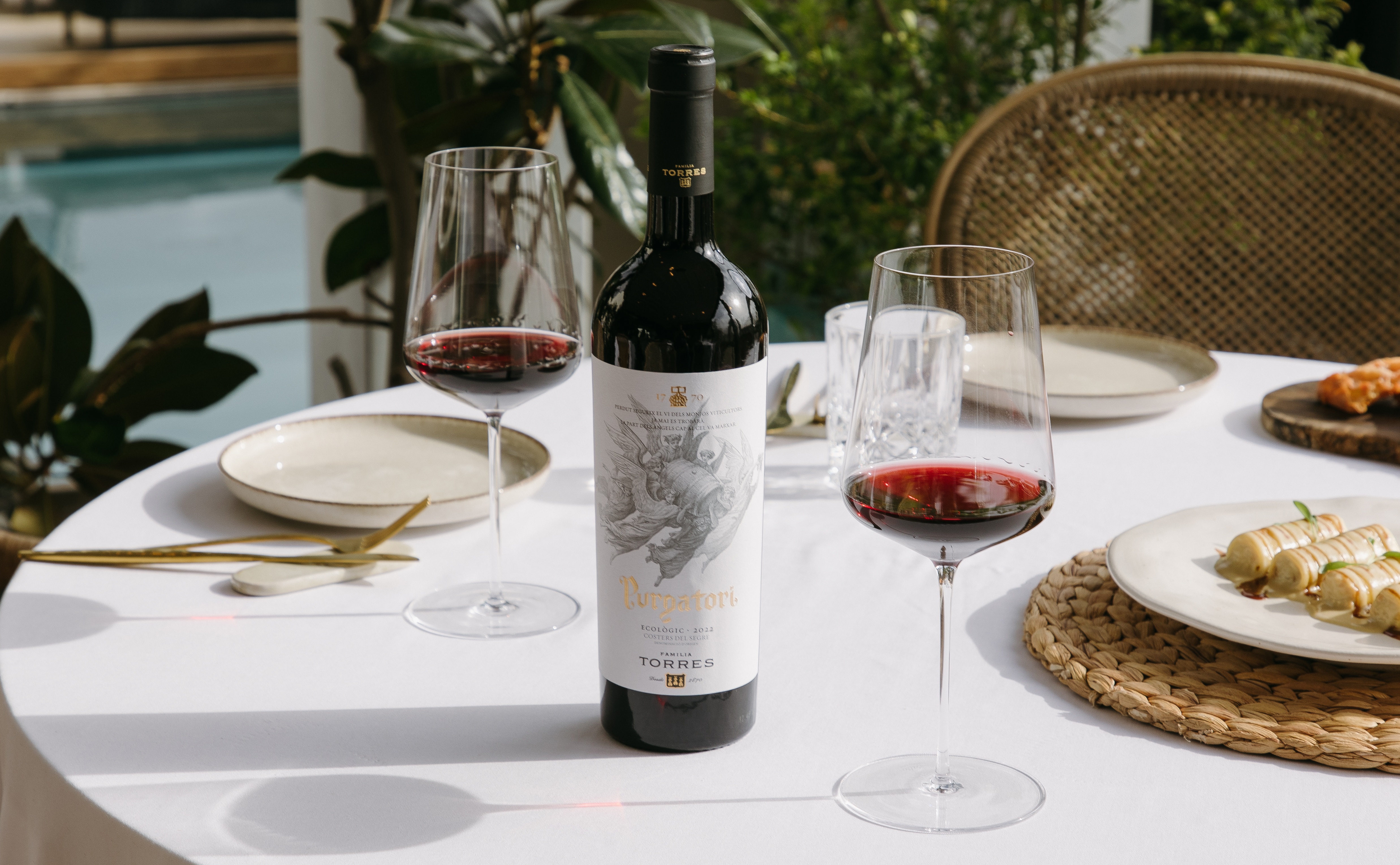Familia Torres organized the First Regenerative Viticulture Conference to coincide with the World Day to Combat Desertification and Drought, held annually on 17 June and focused this year on transforming degraded land into healthy land. The conference boasted the presence of renowned national and international experts who provided an in-depth look at regenerative agriculture and called for a swift transition to this model. Not only has it shown immense benefits from an environmental standpoint in the current climatic context, but it has economic advantages as well.
“In five years, conventional farming destroys the soil that nature has taken 40 years to create”, explained Francesc Font, an agricultural technical engineer specialized in regenerative agriculture and member of Agroassessor Consultors Tècnics. By contrast, “regenerative agriculture helps sequester CO2 – therefore mitigating the climate crisis – brings the soil and environment back to life – therefore encouraging diversity – and halts erosion”, explained the farmer, who practices what he preaches at his family farms.
This agricultural model, Font explained, is based on “cultivating and nourishing the soil so that in turn it can nourish the crops that grow in it”. Pilar Andrés, senior researcher at CREAF (Centre for Ecological Research and Forestry Applications) and an expert in soil biodiversity, speaks of soils that are literally alive: “they are a complex ecosystem of micro-organisms that play a crucial role in the carbon cycle and soil fertility”. Andrés specified that “more carbon (on a global average) resides within one square metre of soil, at a depth of three metres, than in all plant life and the entire upper atmosphere of that square meter”.
For Miquel Torres Maczassek, fifth generation Familia Torres and the company's general manager, “regenerative viticulture is the only model whose primary focus is on soil carbon capture, and we have to reinforce this function of the soil to contain the climate crisis and help the planet recover”.
In his welcome address, the Mayor of Vilafranca del Penedès, Pere Regull, called for urgent action on climate change, “because if we don't do anything, the consequences will be dire”. The conference was held at Vinseum, the museum of wine cultures of Catalonia in Vilafranca del Penedès, and was broadcast via a live stream.
Case studies in environmental and economic success
Throughout the conference, speakers provided several practical examples and their results. Darren Doherty, founder of Regrarians and an international consultant and trainer in regenerative agriculture, showed how these types of crops are not at odds with quality: “...one [vineyard] we are working with in western Australia [...] their Cabernet is in the top 100 wines in the world”. Also referencing Australia, James Sweetapple – winegrower, winemaker, and owner of Cargo Road Wines – stated that thanks to regenerative agriculture – an approach he adopted a decade ago – his “carrying capacity has increased 11.25% “ even though the drought in the country “was the worst in 100 years”.
Miquel Torres Maczassek commented on how “the resilience of regenerative viticulture brings greater consistency to the wine. The wine better reflects the fertility of the soil and, in drought years, we can obtain more elegant wines”.
Allan Savory, the ecologist behind the idea of holistic management and president and founder of the Savory Institute, presented the results of a Ohio State University study on the first farmers that Savory trained when he arrived in the country: “...early adopters who started to manage holistically around the US [...] averaged a 300% increase in profits. [...] at the time of this study, over the US, more than 600,000 family farms went bankrupt”.
An urgent transition
Miquel Torres Maczassek announced that “we have launched a plan to implement the regenerative model in 500 hectares of organic vineyards in Catalonia, which will bring life back to the soils and make it possible to regenerate them, as nature would, based on a holistic vision of the land”. Committing to regenerative viticulture will enable the winery to continue cutting its emissions and achieve carbon neutrality before 2050.
The general manager of Familia Torres also revealed plans to create a regenerative viticulture association, in conjunction with AgroAssessor and other wineries, to share information and experiences. It would also provide a meeting place for winegrowers and farmers who are working with a regenerative management model or are interested in doing so.
In a debate moderated by environmental journalist Cori Calero, regenerative agriculture consultant Josep Ramon Sainz de la Maza and Keyline design and holistic management expert Manel Badía underscored the importance of promoting this model and offering training courses to overcome the resistance to change.
The most compelling message came from James Sweetapple: “please start now. Please don't hesitate, please start now. You will save money. You will save on input costs. You will be helping save your environment, which in turn is going to save our environment, which in turn is going to save your children’s environment, please start now. If you start now and do good thinking, you will be able to change your land quite quickly, and you will be happier, and our future will be happier, and together our planet will happier. So please start now”.
In closing the conference, Elisenda Guillaumes, the head of the Department for Agriculture and Livestock of the Generalitat de Catalunya, insisted that “the future will be regenerative – or there won't be a future” and announced that the department will “support livestock breeders and farmers in this transition”.
Click here to watch the videos of the conference



